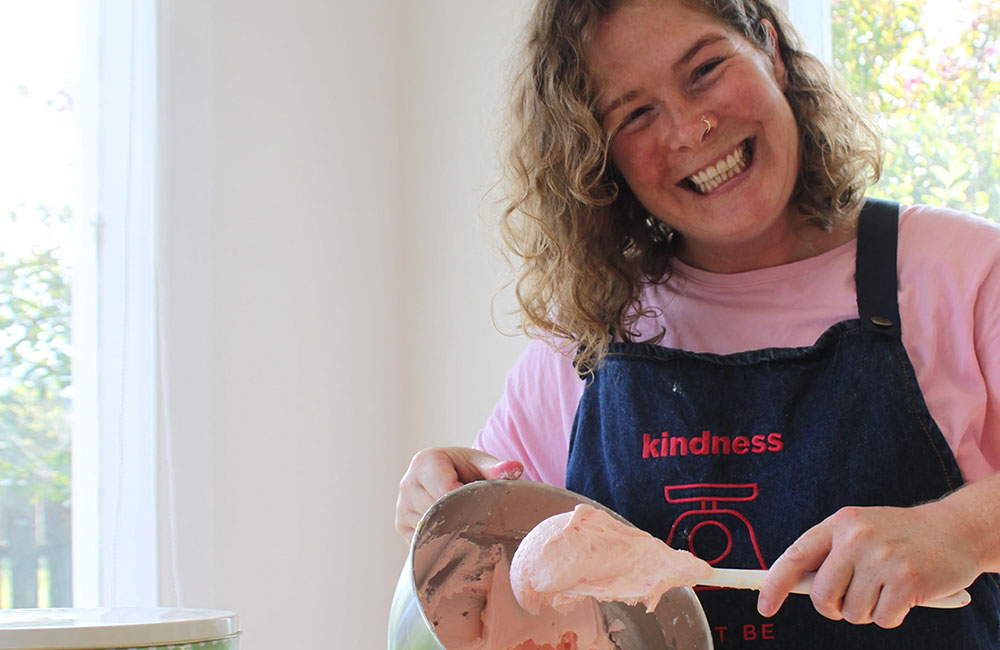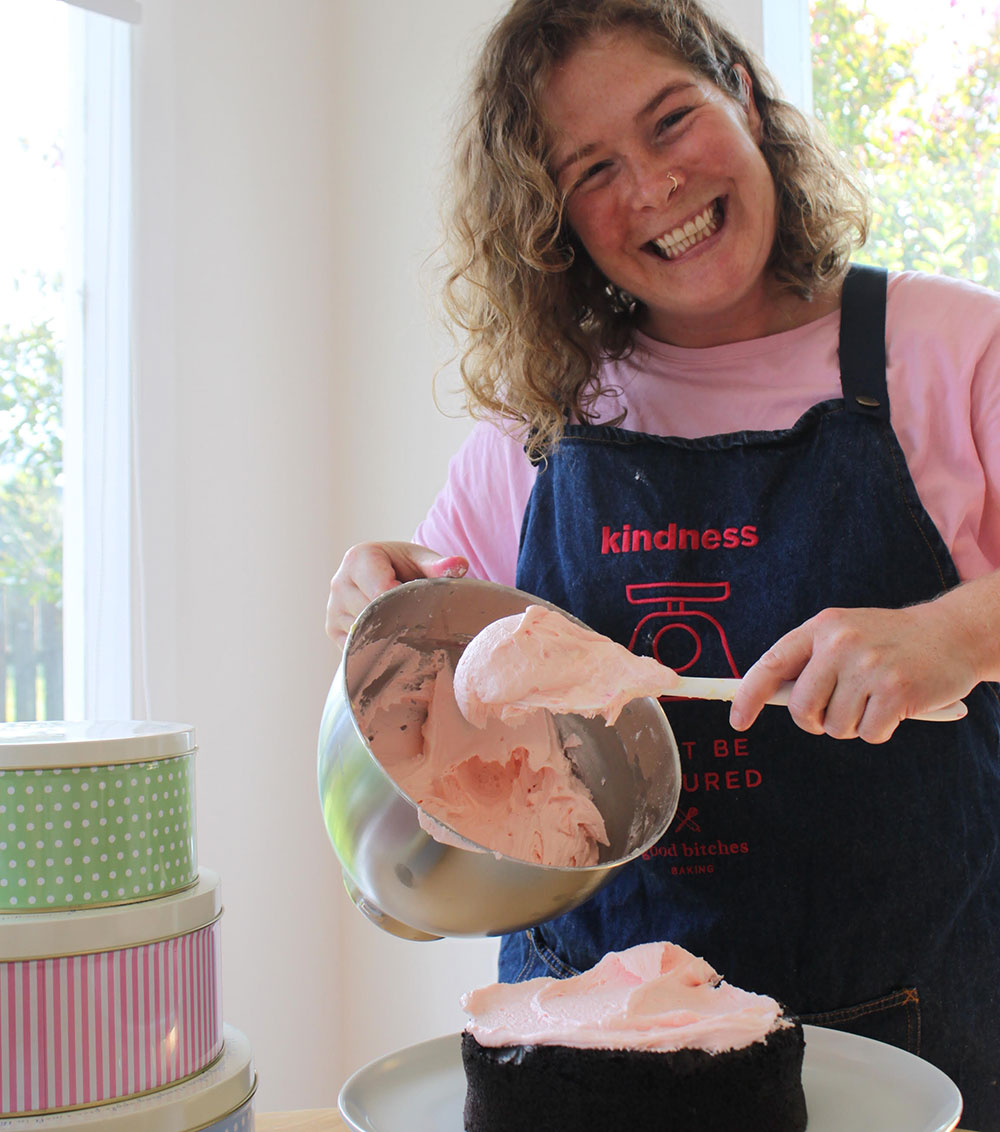Defying the odds to bring community values to banking
When many were facing a cost-of-living crisis and a chilly winter, the WBS Charitable Trust donated to the Pasifika O Wairarapa Trust to help it get firewood to the most vulnerable.
Above: The local chapter of Good Bitches Baking, headed by Eve Williams, pictured, was among recipients of funds granted by the WBS Charitable Trust earlier this year.
Helping Wairarapa residents through winter was far from the trust’s only allocation of community goodwill – other grantees in the funding round were Digital Seniors, who help senior citizens with tech support to improve wellbeing.
The trust receives all of its funding from the Wairarapa Building Society (WBS), which recently doubled its annual donations – meaning more money finding its way to help local organisations, such as foodbanks, sports teams and social support.
Building societies are not just banks. They add value to the communities in which they operate. It is part of their DNA.
Of course they also look after people’s hard-earned savings; of course they help people into homes – but then they recycle profits back into their communities, communities feeling increasingly abandoned by main stream banking.
Rural towns not just in Wairarapa but across Aotearoa have been left with 0800 numbers, rather than branches, and the internet rather than face-to-face service.
WBS profits stay in the local community. It doesn’t pay dividends to shareholders, instead donating to WBS Charitable Trust, which helps community organisations.
WBS has its head office in Masterton, not Australia.
WBS is a solid business and an asset to the community. Last year, it celebrated 150 years of serving its province.
It remains financially strong. It is carefully regulated, licensed by the Reserve Bank of New Zealand (RBNZ) and has a solid credit rating, which has remained stable for over 15 years.
But it’s not all roses. WBS is competing with one hand tied behind its back thanks to regulatory barriers that mitigate against fair competition with the large Australian-owned banks. Building societies and non-bank deposit-takers are now working to ensure those in government understand the challenges faced by small community-focussed organisations. They do so in the hope that regulatory changes being considered around the banking industry are proportionate and fair, so do not act as barriers to them serving their communities.
Barriers include:
- not being able to use the term ‘bank’ which makes it harder for them to build brand awareness;
- not being able to access the Reserve Bank’s Exchange Settlement Account System, which allows the larger banks to put money on deposit with the Reserve Bank and earn higher interest rates;
- removal of the higher capital requirements for smaller players like WBS for the same types of lending that large banks provide.
If some of these can be addressed by politicians or the Reserve Bank, the retail banking sector could be more competitive and inclusive. That would benefit local communities and help ensure profits don’t go offshore.
Can WBS compete with the “big banks”? Absolutely. It offers competitive products and interest rates. Its members and customers can relate to the WBS purpose and see how it supports the community in many ways. Its customers are loyal and supportive. There is relevance and great value for professional and long-serving building societies, such as WBS, to help regions and communities prosper. With a refreshed regulatory environment and a fairer playing field, WBS and similar players can continue to make an important difference for our communities and provide much needed choice for consumers.
What is a building society?
Building societies originated in England in the late 18th century with a simple idea: to connect local investors with local people who needed to borrow in order to buy or build a home. The idea of a building society or a mutual was founded on social purpose. Their main goal was to support home ownership and put it within reach of ordinary people when times were tough.
The business model has evolved and increasing compliance requirements for the banking industry have presented challenges.
John Healy is chief executive of the Wairarapa Building Society.


